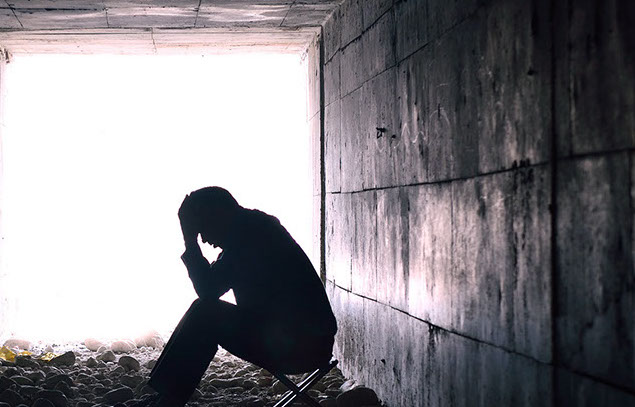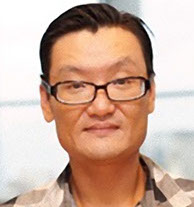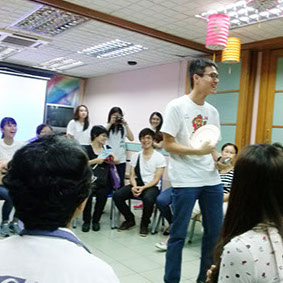
JOURNEY INTO MADNESS
A Common Core course is helping students to deepen their empathy towards sufferers of mental illness and bring that understanding into their daily lives.

When Dr Paul Wong Wai-ching of the Department of Social Work and Social Administration was training to be a clinical psychologist 20 years ago in Australia, he noticed there was one standard way to understand mental illness: it was a problem of abnormality that needed professional treatment. And if sufferers did not get that treatment, they could harm themselves or others. “This was the message I was receiving from the first day I started studying psychology,” he said. Now he is working to turn it on its head.
Dr Wong began teaching a broadening course a decade ago to share his research findings on suicide and help students identify and cope with stress, depression and suicidal thoughts. That course has been expanded into a Common Core course that probes even deeper, asking students to consider what is normal and providing them with the opportunity to spend time with people who suffer from mental illness.
“My major aim with this course is to raise students’ awareness of mental health and equip them to look at themselves and others so they can see if someone might need help,” he said.
“For example, one of the common myths of suicide is that people who kill themselves don’t tell others that they want to do so. But that is wrong. A lot of them do tell others because they want help. But because of this myth, and because people don’t understand mental illness, they end up being ignored.
“Relying solely on professionals to deal with mental illness and suicide issues is nonsense. How many people in a conservative society like Hong Kong turn to professionals when they are distressed? Instead sufferers rely on themselves or those who are near them, their families and friends and colleagues.”
The course explores notions of mental illness in different cultures and from psychiatric, psychological, sociological, public health, and traditional Chinese medicine perspectives, as well as how patients can help themselves and each other to recover after treatment.

![]() Relying solely on professionals to deal with mental illness and suicide issues is nonsense. How many people in a conservative society like Hong Kong turn to professionals when they are distressed?
Relying solely on professionals to deal with mental illness and suicide issues is nonsense. How many people in a conservative society like Hong Kong turn to professionals when they are distressed? ![]()
Dr Paul Wong Wai-ching
First-hand experience
Students also consider the difference between mental health and mental illness by looking at what constitutes ‘normal’. One of the guest speakers is a person who practises BDSM (bondage-domination-sadomasochism), which only recently was declassified as a mental disorder in the Diagnostic and Statistical Manual of Mental Disorders, a handbook used by professionals around the world.
A new element was also added this academic year in which students were offered direct contact with people who suffer from mental illness. Dr Wong found a willing partner, the Regeneration Society (RS), through HKU’s Gallant Ho Experiential Learning Centre (GHELC). The RS serves people with skin diseases but many of the users also suffer mental health issues such as depression and bipolar disorder.

Dr Wong’s students are given opportunities to have direct contact with people who suffer from mental illness.

Students working with the Regeneration Society to promote the awareness of mental health.
The students worked in groups of 10 under tutors Martina Ambrose and Gizem Arat, and Dora Chow of the RS to either develop a half-day course for users based on their classroom learning about finding ways of being happier, or produce an information pamphlet about mental illness and distribute it on the street to raise awareness. There were 12 groups in total and each produced a short video covering their activity and student reflections on the experience. These are being collated by professional editors into videos that will be available to HKU’s U-Vision, the GHELC and the RS.
Hadley Leung Hau-kwan, a first-year Business student, was part of a group that organised a session for RS’s users. She said she met people she might not otherwise encounter, including a middle-aged woman who was recovering from depression and initially treated the students with suspicion. The woman later told them how her sons had rejected her because of her depression and how important it was to have family support in recovery.
“Chinese society is conservative and it is seen as shameful to tell others you have mental problems,” she said. “We rarely meet people with mental illness, so this experiential learning gave me an opportunity to play games with the patients and chat with them and hear their personal stories. I discovered they are just as normal as us and should not be discriminated against by society.”
That kind of first-hand experience dovetails with Dr Wong’s aims. “The literature tells us that one of the best ways to destigmatise mental illness is to learn about it and engage with people with mental illness. That is something I hope to achieve with this course,” he said. He hopes in future to be able to develop it into an open learning course for the general public and thereby foster a more caring attitude toward mental illness in wider Hong Kong society.
Back

